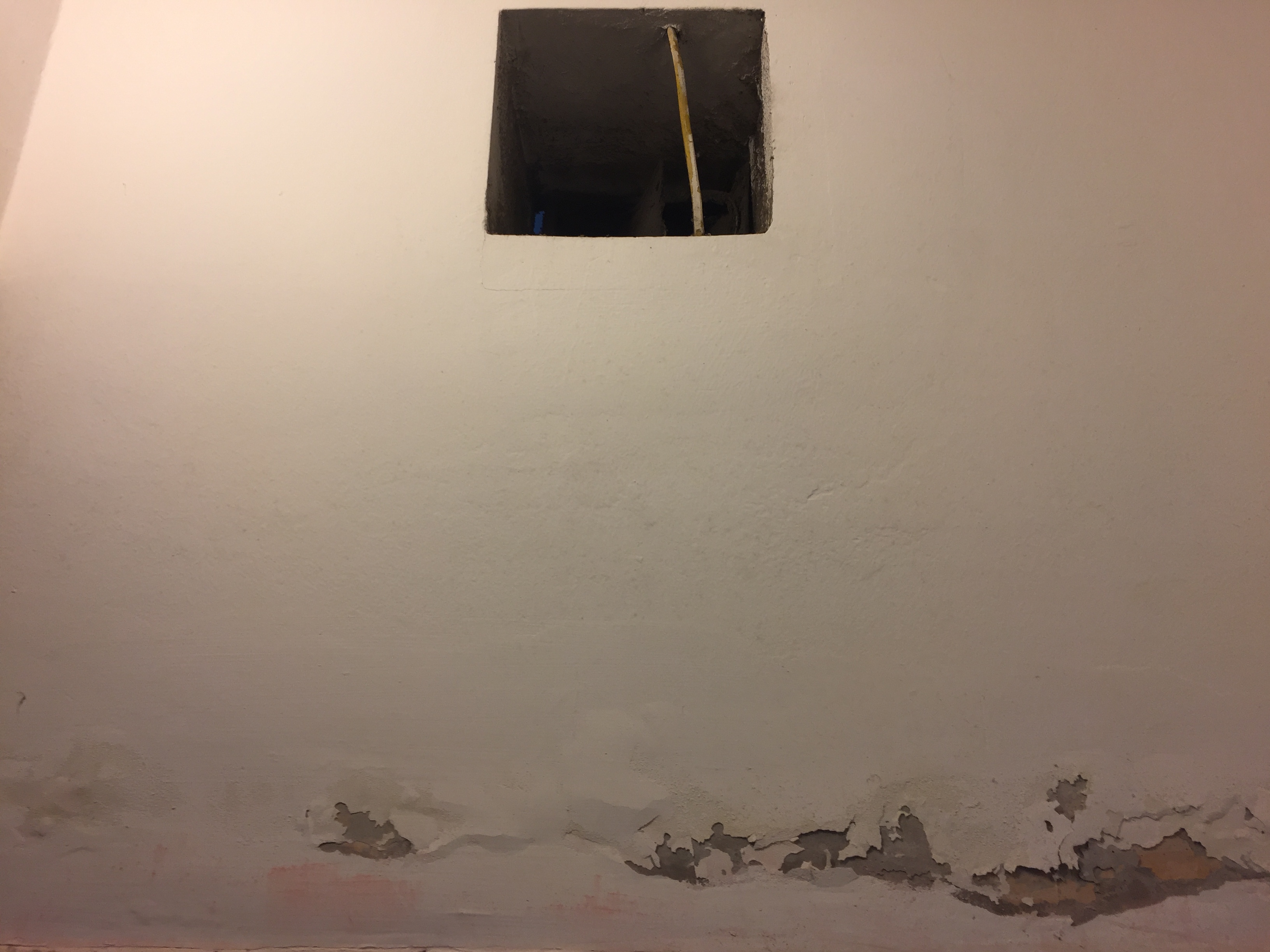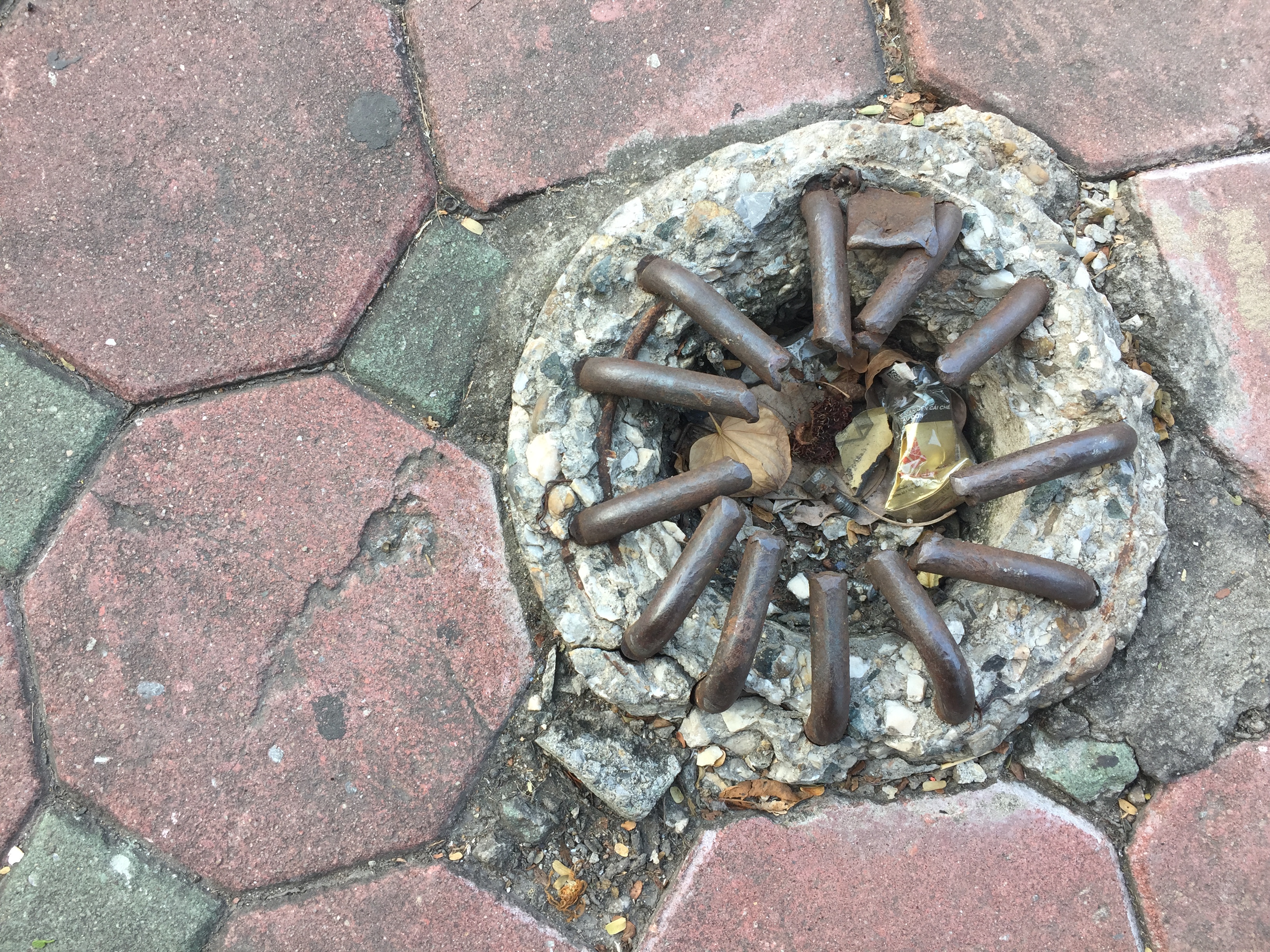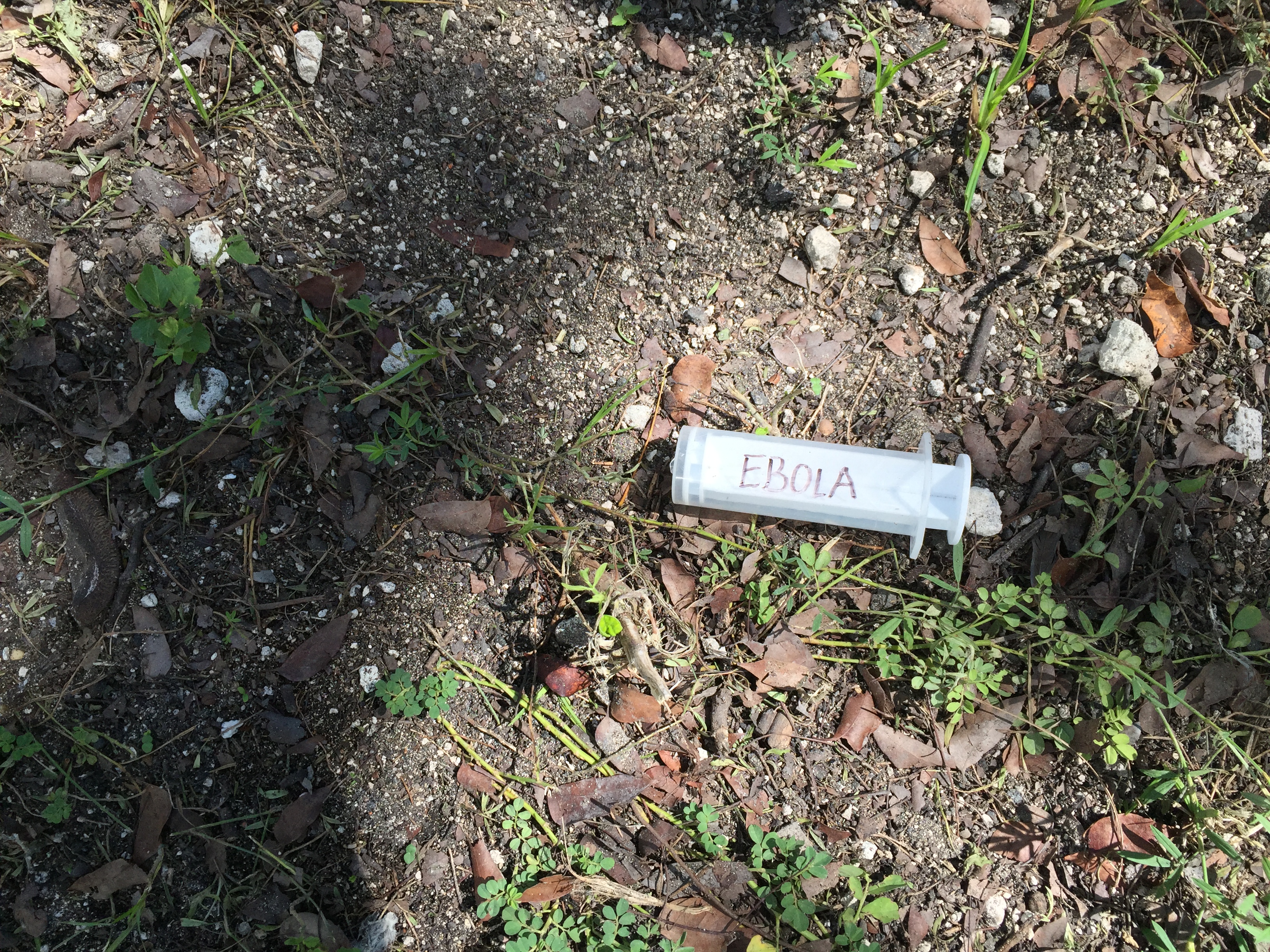Honey Sunset
Well.
It has been some time, reader. It may not seem that way to you but that is the magic of staggered release. I stagger even now, on a leg that recovers slowly because I can’t seem to keep off it. I type with one functioning arm. Can you tell?
The accident did a number on me and it put my travel on hiatus. It has been three months since I was pulled from the truck and dragged up to the road by a fifteen-year-old driver-in-training and her blood-phobic father and about eight weeks since I slipped out of the hospital, a rattled John Doe to the bitter end. I am the burden of the taxpayers now.
They’ll find me eventually.
At the egging-on of the radio I hid my wallet and my cellphone in the trunk of an old tree they leaned me up against on that fateful night. The truck’s plates are dead-ends, not because I am a mastermind but because I bought it from a man on the internet who didn’t have papers and I never bothered to make up papers of my own. The tags have long expired but nobody cares to check when you drive the speed limit, always just the speed limit, and when you’re white and plain and from a different state.
That’s what I assume, anyway.
My worldly possessions have been reduced once again to the contents of my bag: a copy of ‘Shitholes,’ a flashlight, two pens, and that damn comb. Add to that my cellphone and my wallet, recovered from the tree, and the truck’s disconnected radio, heavy and sharp for all that it’s currently useless. Minus the truck itself, of course. Now I rely on the kindness of others to get around.
There is one more stop, while I’m here:
“‘The Somerset Honey Bucket’ advertises itself like a refinery, its pamphlets featuring well-dressed, middle-aged couples smiling and holding small tasting cups. It would be easy to mistake their beverage of choice for scotch or bourbon, some sort of whisky, literally anything but the truth. The truth is that this is a destination for families with sweet teeth in their genes, for people who want to try their hand at tasting soil quality in a quarter cup of honey. Tour the grounds, cut the sugar with a waffle, and then leave lest you become stuck, stuck like the ghost of its founder.”
Thankfully, ‘The Honey Bucket’ has a bus service to shuttle prospective visitors from town to its estate a few miles on the outskirts. Free of charge. I wait for the bus on a Tuesday afternoon, the matinee, hoping I’ll be on my own.
I’m not.
A few large groups gather, organized and led by a guide. Several couples orbit the denser masses. There are children and the children stare. Everybody looks, but the children look closely. They see me and they know something is wrong.
As soon as I knew I would be back on the road I shaved and cut my hair. I pressed a shirt and dusted off my shoes. In the mirror I thought I could pass as a respectable somebody whose life had recently taken an unexpected turn.
I still look every bit the man who failed to.
My arm is in a sling, dirty since my abrupt departure from treatment. An old gash becomes a new scar over my right eye; I wear a boot and walk like a cartoon pirate. I have taken the next step toward the archetypal drifter, a man whose story is discredited before he even opens his mouth.
And, reader, the man on the book has no scar.
“All aboard,” calls the shuttle driver, a lumberjack behind the wheel.
I jump to the front of the line and then, quickly, to the back of the bus. Despite the crowd, I find I have a seat to myself.
We are not on the road long before I move to scratch under my cast and find my hand coming away from the faux leather with a sticky tug. Pulling up my boot from the floor elicits a tactile ‘snap’ usually reserved for movie theatres and food courts. Nobody else seems bothered, so I try to distract myself with scenes from the window, filtered through a thin yellow tinting on the glass.
As we pull into ‘The Honey Bucket’s’ grounds there is a cacophony of soles twisting on the sticky floor. A child, set into the aisle by his mother, falls on its hands and struggles to right itself. I grimace, inwardly, when it finally stands and pulls a toy to its mouth. I try not to touch anything with my bare skin and still my clothes hold to the seat with the near-imperceptible grip of a sticky-note.
I am the last to leave the bus.
My hand sanitizer is gone, lost in the crash or the slipping away that followed. It is with sticky fingers that I miss it now, compulsively rubbing my hands on my pants and trying to seem inconspicuous in the crowd.
Several employees greet us in the lobby, their shoes pulling noisily on the polished wood. We hover as a group on the entryway rug, avoiding the floor. I feel, at once, validated and concerned.
“Welcome to The Somerset Honey Bucket!” one of the employees says, a woman in her late thirties, “We thought we’d start here with a quick tasting before we get you on the tour.”
The man behind her has a trayful of little plastic cups, each filled with a tablespoon or so of honey. He holds it forward with a little flourish.
“Volunteers?”
There is an obscene amount of hesitancy. I look around and wonder why these people showed up if they weren’t ready to drink honey out of a cup and if they weren’t led here by Shitholes. Maybe this is the low point on some tour package, something a company uses to fill out the odd day in the middle. A mom tries to push a disinterested middle-schooler ahead but he twists back behind her with a practiced movement and goes back to looking at his phone. Someone chuckles self-consciously. Light music plays in the lobby.
“You,” the man says, looking at me of course, “Come try one.”
I look at the others and now, rather than avoiding eye contact, they’re giving me encouraging smiles and little thumbs ups. I smile back, or give a confused frown (difficult to know), and take a resigned step forward. My shoe immediately sticks on the wood and pulls away noisily. I approach the tray and choose a cup at random.
“Ah,” he says, “Interesting choice. This is a top-grade pale amber, looser than what is often available commercially. Some people say a loose honey indicates a lazy queen but that hasn’t been my experience at all. I can introduce you to the bees that made this.”
“Uh,” I say, “Thanks.”
In the time it takes me to offer a good-natured cheers to the crowd behind me the woman steps forward with a metal bowl- a spittoon.
“I’m supposed to spit this in there,” I clarify, and she nods.
There’s a lot wrong with the situation but I am aware enough to see this isn’t the time to point it out.
I take the honey in my mouth and, at the egging-on of the connoisseur, swirl it around. It’s sickeningly sweet and about as consistent as olive oil. Sooner than is probably proper, I spit the stuff into the woman’s bucket and it trails in thick strands between my lips and the metal. I wipe my mouth with my sleeve, too late to see the proffered towel with The Honey Bucket’s logo embroidered near the hem. I cough twice, inhaling some of the honey as I do, and then straighten to give the crowd a watery-eyed thumbs-up.
Go for it, guys.
My jacket is streaked with honey already. I excuse myself to the bathroom while the rest of the guests make their way through the tap’s welcome offering. I rinse out my mouth with water and feel better, despite the broken man in the reflection. A child is crying outside.
The kid’s hair is matted to its head and there is a sticky puddle of honey on the floor. The parents console it but try to keep the screaming youth at a distance that will spare their clothes. Everyone looks uneasy, a few look outright upset.
“So!” the woman says, failing to read the room, “Shall we tour the grounds?”
I mostly ignore the history of Somerset’s honey economy, we all do. They take us through the factory, show us the hive, bring beakers of honey and bees to lights so that we might remark on the incredible purity, the golden yellows and deep ambers of the liquid and on the dainty stripes of the insects. We start to get distracted; the place has honey in the air. Before long we’re covered in a layer of something, something like day-old sunblock and sweat. Everything becomes sticky and our stomachs turn each time our smiling host pulls out a new product to sample. The child cries quietly now, its tears moving thickly and at a snail’s pace.
Faced with mutual suffering, the groups have warmed to me. They spare their skeptical eyes for the Somerset folk and let me trail behind them, just another lost soul in a honey factory.
“And there you have it, everybody,” the woman is saying, “A sweet taste of traditional America. Now, I’d like to open the floor to questions!”
“Who owns this place?” I ask and a man behind me misunderstands my genuine question for a thinly-veiled, ‘let me speak to your manager.’
He lands a jovial thump on my back and then takes a moment to pull his hand free from my jacket. The whole process sends sharp jolts of pain through my shattered bones. He whispers an apology.
“The owner?” the woman asks.
“Yeah.”
“She’s… busy.”
“I wasn’t asking if I could see her, I had just read…”
“She’s outside,” the man blurts out, “Out back. She watches the sunset around this time in her chair. Go on.”
“She’s not…”
“Go on.”
“She’s not dead?”
“Of course she’s not dead,” the woman says, narrowing her eyes at me and continuing to stare as she addresses the crowd: “Any more questions?”
There are no more questions and as we file into the gift shop I find the people have grown wary of me again, wary in response to something in the question I asked. I sneak away while everyone looks over vials of honey and plush bees to take home to their families.
An old woman sits just outside a fire exit, rocking slowly in her chair. She says nothing as I stand next to her, watching the sun set over the orchard. When it finally slips under the horizon, casting us into a translucent twilight, I notice her rocking has stopped. Her chair has stuck to the floor in a backward-leaning position, her legs swing weakly and her eyes just stare and stare ahead.
I quietly grip the back of the chair, and when nothing changes, I gently pull it free, setting her rocking once again. The woman grips the arms of the chair, her thumbs rub nervously on the wicker arms.
“Sun…” she mutters, “Sun like a pancake’s what I used to say.”
“What?” I ask, and she just starts screaming. Screaming and screaming.
Screaming and rocking.
I sneak back around the building to the parking area. I look for a long time at the empty gravel lot. My bus has gone.
I am stuck, reader.
I am stuck.
-traveler




